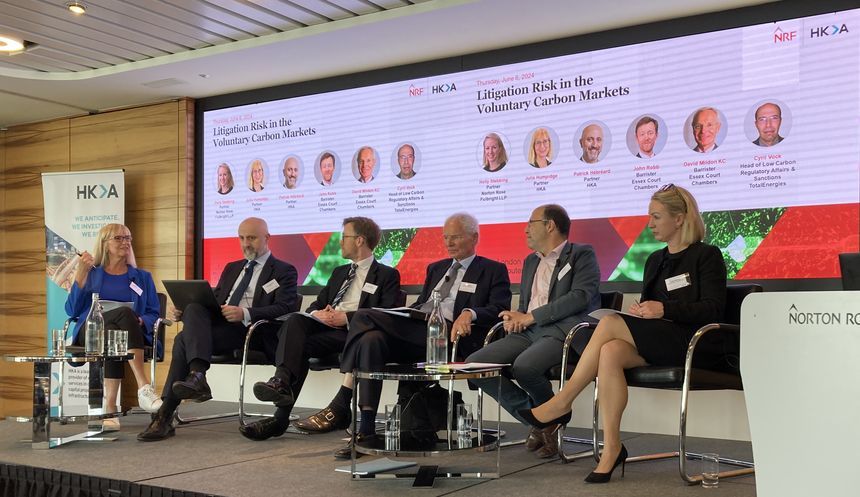NO
Norton Rose Fulbright Hong Kong
Voluntary carbon markets (VCMs), estimated to be worth $250 billion by 2030, face significant risks due to their newness and lack of regulation. Key issues include greenwashing, inconsistent carbon accounting methodologies, verification point examinations, and human rights issues in offset projects. The evolving nature of VCMs will likely lead to litigation as the industry matures.
Britain
Energy and natural resources
To print this article, simply register or log in to Mondaq.com.

Voluntary carbon markets could play a crucial role in the energy transition. Some estimate that the sector will be worth $250 billion by 2030. However, VCMs are still relatively new and largely unregulated, with different standards and methodologies for carbon accounting, which still leaves the market vulnerable to litigation.
As part of LIDW, I was joined on this panel by colleagues from across the legal sector to discuss some of the disputes facing market participants. Here are some key takeaways from our discussion.
- While not the only mechanism to offset carbon emissions, carbon credits have proven to be the most popular. These credits allow companies and other organizations to offset their emissions by investing in projects that reduce greenhouse gas emissions elsewhere. One of the biggest issues for those using carbon credits is the risk of greenwashing – companies need to be clear about what terms like ‘net zero’ and ‘carbon neutral’ actually mean and when claims are made on an offset basis rather than on an offsetting basis. greenhouse gas emissions. reductions at source.
- The ‘value’ of a carbon credit is difficult to measure and projects can change over time. The lack of consensus on carbon accounting methods could lead to a valuation gap between different industry players and could give rise to lawsuits.
- The role of verifiers may come under scrutiny, especially if they are involved in challenging projects. They will need to ensure that their methodologies are rigorous and continue to evolve as the sector matures.
- Some offset projects have been criticized for alleged human rights abuses, with local people forcibly evicted or displaced by carbon credit projects, and it can be challenging for governments to balance the benefits of carbon credit projects with the need to develop and build local infrastructure ensure energy security, which can compete with each other.
While they are a force for change and progress, voluntary carbon markets, like many new industries, will face challenges as they develop and mature, and we will undoubtedly see disputes arise…

The contents of this article are intended to provide general guidance on the subject. Specialist advice should be sought regarding your specific circumstances.


